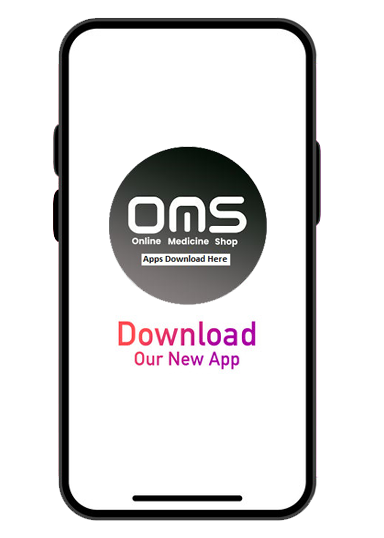
Bone-Guard 150 mg Tablet
৳ 510
Quantity:
1
SKU: T2M1944
Order By Call:
+88 01540 384 786 (Mobile)
+88 01819 479 004 (WhatsApp)
About the Product
Full Description
Presentation
\nBone-Guard:Each tablet contains Ibandronate Sodium Monohydrate INN eq. to Ibandronic Acid 150 mg.
\n \nDescription
\nIbandronic Acid (Ibandronate Sodium Monohydrate) is a nitrogen-containing bisphosphonate that inhibits osteoclast-mediated bone resorption. The action of Ibandronate on bone tissue is based on its affinity for hydroxyapatite, which is part of the mineral matrix of bone. Ibandronate inhibits osteoclast activity and reduces bone resorption and turnover. In postmenopausal women, it reduces the elevated rate of bone turnover, leading to, on average, a net gain in bone mass.
\n \nIndications
\nIbandronic acid is indicated for the treatment and prevention of osteoporosis in men and women.
\n \nDosage & Administration
\nThe dose of Ibandronic acid is one 150 mg tablet taken once monthly on the same date of each month. To maximize absorption and clinical benefit, Ibandronic acid should be taken at least 60 minutes before the first food or drink (other than water) of the day or before taking any oral medication or supplementation, including calcium, antacids, or vitamins Ibandronic acid tablets should be swallowed whole with a full glass of plain water (6 to 8 oz) while the patient is standing or sitting in an upright position. Patients should not lie down for 60 minutes after taking Ibandronic acid. Patients should not eat, drink anything except water, or take other medications for at least 60 minutes after taking Ibandronic acid. Patients should not chew or suck the tablet because of a potential for oropharyngeal ulceration.
\n \nSide Effects
\n? Pain or trouble with swallowing
\n? Chest pain
\n? Heartburn (esophagitis)
\n? Diarrhea
\n? Pain in extremities (arms or legs)
\n? Dyspepsia (upset stomach)
\nPrecautions
\nUpper Gastrointestinal Adverse Reactions:
\nIbandronic acid like other bisphosphonates administered orally may cause local irritation of the upper gastrointestinal mucosa. Because of these possible irritant effects, caution should be used when Ibandronic acid is given to patients with active upper gastrointestinal problems (such as known Barrett?s esophagus, dysphagia, other esophageal diseases, gastritis, duodenitis or ulcers).
\n \nHypocalcaemia and Mineral Metabolism:
\nTreat hypocalcemia and other disturbances of bone and mineral metabolism before starting therapy.
\n \nMusculoskeletal Pain:
\nSevere and occasionally incapacitating bone, joint, and/or muscle pain has been reported in patients taking Ibandronic acid and other bisphosphonates.
\n \nJaw Osteonecrosis:
\nOsteonecrosis, primarily in the jaw, has been reported in patients treated with bisphosphonates. Most cases have been in cancer patients undergoing dental procedures, but some have occurred in patients with postmenopausal osteoporosis or other diagnoses.
\n \nUse in Pregnancy & Lactation
\nPregnancy:
\nPregnancy Category-C.
\nThere are no adequate and well-controlled studies in pregnant women. Ibandronic acid should be used during pregnancy only if the potential benefit justifies the potential risk to the mother and fetus.
\n \nNursing mother:
\nIt is not known whether Ibandronic acid is excreted in human milk. Because many drugs are excreted in human milk, caution should be exercised when Ibandronic acid is administered to a nursing woman.
\n \nPediatric patient:
\nSafety and effectiveness in pediatric patients have not been established.
\n \nDrug Interaction
\nProducts containing calcium and other multivalent cations (such as Aluminum, Magnesium, Iron etc.), including milk, food, and antacids are likely to interfere with absorption of ibandronate. It is also found to interact with H2 blockers such as Ranitidine in several clinical trials.
\n \nOver Dose
\nNo specific information is available on the treatment of overdosage of Ibandronic acid However, based on knowledge of this class of compounds, oral overdosage may result in hypocalcemia, hypophosphatemia, and upper gastrointestinal adverse events.
\n \nCommercial Pack
\nBone-Guard: Each box contains 1 blister strip of 1 tablet.
\n
Reviews:
No Review
Releted Products





